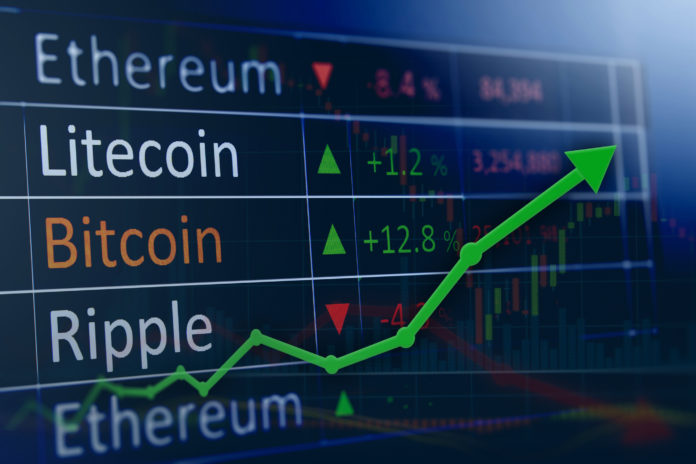By Alex Rivera
In recent years, cryptocurrency has gone from a fringe fascination to a mainstream financial obsession.
What started as a digital experiment in decentralized money has evolved into an around-the-clock global market — ripe with extreme highs, devastating lows, and endless excitement.
But behind the news of overnight millionaires and market crashes lies a growing mental health issue that few are talking about: crypto trading addiction.
The Fine Line Between Investing and Addiction
Investing is a rational process meant to build wealth over time. Addiction, on the other hand, is an emotional and behavioral cycle driven by compulsion, craving, and ultimately, loss of control. Crypto trading blurs this line more than traditional stock investing because it shares many of the same psychological triggers as gambling.
With its high volatility, social hype, and potential for instant profits, cryptocurrency creates the perfect storm for addictive behavior. The rush of watching prices swing wildly can activate the brain’s reward system, much like placing a bet at a casino.
Why Crypto Trading Is Uniquely Addictive?
Several features make cryptocurrency particularly prone to compulsive behavior:
1. 24/7 Market Availability
Unlike stock markets, crypto exchanges never close. This non-stop nature creates endless opportunities for new trades — and no natural “off switch” for the brain. Traders can spend all hours of the night refreshing charts, checking news, and making decisions fueled more by emotion than logic.
2. Social Validation and FOMO (Fear of Missing Out)
Crypto trading communities are often built around social media platforms like Reddit, Discord, Twitter, and Telegram. This social environment can fuel risky decisions, especially when traders are bombarded with stories of others striking it rich — feeding the addictive need to “not miss out.”
3. Dopamine-Driven Highs
When a trade goes right, the brain gets flooded with dopamine, the same chemical involved in drug and gambling addiction. Over time, the trader begins to crave that dopamine hit, leading them to seek out riskier trades more frequently, even when logic says to stop.
4. Easy Access and Anonymity
Opening an account on a crypto exchange is simple, often requiring little more than an email address. The anonymity of trading, especially on decentralized platforms, makes it easier for compulsive traders to hide the problem from loved ones and even from themselves.
Warning Signs of Crypto Trading Addiction
Like any addiction, crypto trading addiction often starts subtly and escalates over time. Here are some common warning signs:
- Constantly checking crypto prices, even at work or during family time.
- Feeling anxious or irritable when unable to access a trading platform.
- Hiding the extent of trading activity or financial losses from friends and family.
- Prioritizing trading over essential life activities like sleep, meals, and social interactions.
- Using trading as an emotional escape from stress, boredom, or depression.
- Repeatedly investing money that cannot afford to be lost.
The Emotional Toll of Addiction
Beyond the financial risks, crypto trading addiction can severely impact mental health. Traders often swing between extreme euphoria and crushing guilt or shame. Losses can trigger anxiety, depression, and even suicidal thoughts — especially when someone’s identity becomes tightly tied to their performance as a “successful investor.”
Relationships often suffer too. Addicted traders may become withdrawn, secretive, or defensive about their behavior. This isolation further deepens the cycle, reinforcing the emotional dependence on trading for comfort or excitement.
Recovery: Breaking the Cycle
The first step toward recovery is recognizing the problem — and understanding that crypto addiction is a legitimate mental health issue, not just “bad investing.”
Treatment options can include:
- Cognitive Behavioral Therapy (CBT): Helps identify the thought patterns driving compulsive trades and replaces them with healthier coping strategies.
- Support Groups: Programs like Gamblers Anonymous or even new crypto-specific peer groups can offer community and accountability.
- Digital Detox: Temporarily disconnecting from trading apps, social media, and crypto news can break the cycle of constant stimulation.
- Professional Financial Counseling: Guidance from professionals who help rebuild a stable financial plan and reduce risk exposure.
A Call for Awareness
As cryptocurrency becomes a permanent part of the financial landscape, addiction will likely become an even more pressing issue. It’s crucial that mental health professionals, financial educators, and the public at large begin to recognize crypto trading addiction as more than just poor decision-making. It’s a genuine behavioral health issue — one that deserves compassion, support, and structured treatment.
Final Thought:
Cryptocurrency offers groundbreaking opportunities for the future of finance, but no investment is worth sacrificing your mental health or personal relationships. If your trading habits are beginning to control you — rather than the other way around — seeking help is a sign of strength, not weakness.
About the Author: Alex is a long-time journalist for NewsWatch, using his expertise to explain to readers how technology is reshaping society beyond mere gadgets and algorithms. His reporting cuts through industry hype to reveal the human stories behind technical innovations, offering readers a thoughtful perspective on where our digital future is heading.










